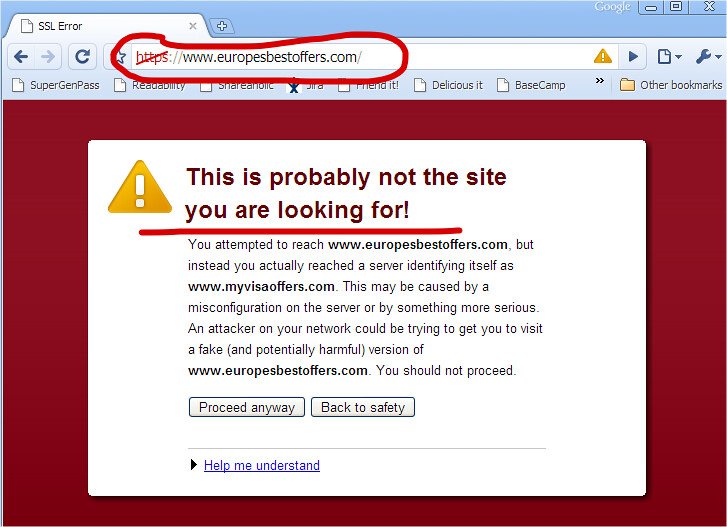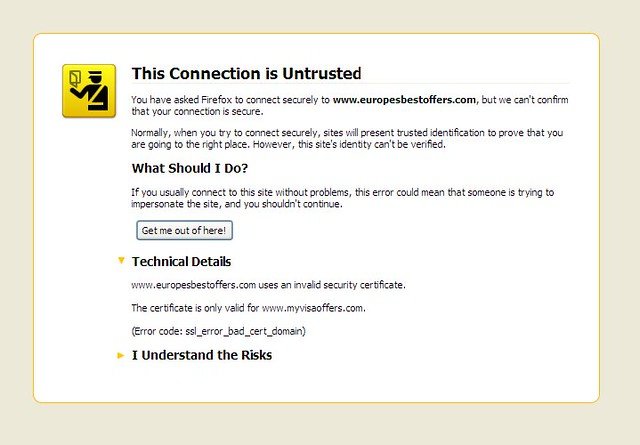Unlock the doors to a fortified digital realm as we delve into the world of SSL certificates, where impenetrable encryption meets unrivaled peace of mind. In an era rampant with cyber threats, safeguarding your website has become paramount, and SSL certificates emerge as the ingenious solution to ensure utter data security. Picture a virtual fortress, impervious to prying eyes and hackers’ malicious intentions – this is the power unleashed by SSL certificates. Join us on a journey where technology intertwines seamlessly with comprehensive protection, as we unravel the secrets behind SSL encryptions and their unparalleled ability to shield your website.
Table of Contents
- The Importance of SSL Certificates: Ensuring Security and Trustworthiness for Your Website
- Exploring the Mechanics of SSL Encryption: How SSL Certificates Work to Safeguard Your Data
- Selecting the Right SSL Certificate for Your Website: Factors to Consider and Recommendations
- Best Practices for Implementing SSL Certificates: Steps to Enhance Website Security and Boost User Confidence
- Q&A
- The Conclusion

The Importance of SSL Certificates: Ensuring Security and Trustworthiness for Your Website
HTML, or HyperText Markup Language, is the backbone of the internet. It is the language used to create the structure and layout of websites. While HTML is crucial for building websites, it alone cannot ensure the security and trustworthiness of your online presence. That’s where SSL Certificates come into play.
SSL, which stands for Secure Sockets Layer, is a technology that encrypts the connection between a website and its visitors. It ensures that the data transmitted between the two parties remains private and secure. Think of it as a shield that protects your website and its users from prying eyes and potential cyber threats. With an SSL certificate in place, any information exchanged, such as passwords, credit card details, or personal data, becomes encrypted and unreadable to anyone trying to intercept it.
But the benefits of SSL certificates go beyond just security. They also play a crucial role in establishing trust and credibility with your website visitors. When a user sees that little padlock symbol next to your website’s URL in their browser, it immediately signals to them that your website is safe to use. It helps build confidence in your brand, making visitors more likely to stay on your site, engage with your content, and potentially convert into customers. Additionally, SSL certificates are not just limited to e-commerce websites or those handling sensitive information. Even if your website does not collect personal data, having an SSL certificate still demonstrates that you are committed to the privacy and security of your users.
In conclusion, SSL certificates are essential for ensuring the security, privacy, and trustworthiness of your website. They encrypt sensitive data, protect against cyber threats, and build confidence in your brand. So, don’t overlook the importance of SSL certificates and unleash their power to shield your website and provide ultimate encryption for your visitors.
Exploring the Mechanics of SSL Encryption: How SSL Certificates Work to Safeguard Your Data
SSL certificates play a pivotal role in ensuring the security and confidentiality of data transmitted over the internet. They act as a digital passport, allowing websites to establish a secure connection with visitors and encrypting the information exchanged between the user and the website. Here’s a breakdown of the mechanics of SSL encryption and how SSL certificates work to safeguard your valuable data:
1. **Encryption: **When a user visits a website protected by an SSL certificate, their browser and the server engage in a cryptographic handshake. This process generates a unique session key that will be used to encrypt the data transmitted between the user and the website. This encrypted data is virtually impossible to decipher for anyone intercepting the communication, ensuring that sensitive information like login credentials, credit card details, or personal data remains protected.
2. **Trust and Authentication: **SSL certificates also address the critical aspect of trust and authentication. They verify the website’s identity, ensuring that visitors are securely connected to the intended website and not a malicious imposter trying to steal their information. This authentication is made possible through a trusted third-party called a Certificate Authority (CA) that validates and issues the SSL certificate. When a user visits a website, their browser checks for the SSL certificate’s validity and whether it has been issued by a trusted CA, instilling confidence that the website is legitimate and that their data is being encrypted and transmitted securely
Selecting the Right SSL Certificate for Your Website: Factors to Consider and Recommendations
When it comes to safeguarding your website and ensuring the privacy of your visitors, SSL certificates play a vital role in providing ultimate encryption. With the increasing number of cyber threats, it is crucial to select the right SSL certificate for your website. Here are some factors to consider and recommendations to help you make an informed decision:
1. Purpose of your website: Determine the purpose of your website to choose the appropriate SSL certificate. If you run an e-commerce store and handle sensitive customer information, an Extended Validation (EV) SSL certificate is recommended. For a blog or informational website, a Domain Validated (DV) SSL certificate may be sufficient.
2. Level of security: SSL certificates offer different levels of security. Domain Validation certificates offer basic encryption, while Organization Validation (OV) and EV certificates provide higher authentication levels. Consider the sensitivity of the data being transmitted and choose accordingly.
3. Compatibility: Ensure that the SSL certificate you choose is compatible with the browsers your visitors use. Most modern SSL certificates provide compatibility with all major browsers, but it is always wise to double-check before making a purchase.
4. Warranty: Check the warranty included with the SSL certificate. This provides financial protection in case of a breach. Higher-priced certificates usually offer higher warranty amounts, giving you added confidence in your website’s security.
5. Customer support: Look for SSL providers that offer excellent customer support. In case you encounter any issues or have questions, reliable customer support can greatly assist you in resolving them quickly.
Based on these considerations, some recommended SSL certificate providers are Let’s Encrypt, Comodo, and DigiCert. Each offers a range of certificates to suit different needs and budgets, ensuring you find the right SSL certificate to shield your website. By choosing the right SSL certificate, you can build trust with your visitors and protect their data from potential vulnerabilities. Remember, a secure website not only protects your users but also enhances your reputation in the online world.
Best Practices for Implementing SSL Certificates: Steps to Enhance Website Security and Boost User Confidence
SSL certificates play a crucial role in ensuring the security and trustworthiness of your website. By implementing SSL (Secure Sockets Layer) encryption, you not only protect the sensitive information of your users but also bolster their confidence in your website’s credibility. Here are some best practices to consider when implementing SSL certificates for ultimate encryption:
1. Choose a reliable certificate authority: Selecting the right certificate authority (CA) is paramount. Trusted CAs, such as Let’s Encrypt and Comodo, provide SSL certificates that are recognized by all major browsers and operating systems, ensuring compatibility and seamless user experiences.
2. Determine the appropriate certificate type: SSL certificates come in various types, such as Domain Validated (DV), Organization Validated (OV), or Extended Validation (EV). The type you choose depends on your website’s needs and the level of trust you want to establish. For example, EV certificates are recommended for e-commerce websites as they display a green address bar, indicating the highest level of security.
3. Install the SSL certificate correctly: After obtaining the SSL certificate, ensure it is installed correctly on your web server. Follow the detailed instructions provided by the certificate authority or contact your web hosting provider for assistance to ensure a smooth installation process.
4. Update all internal links and resources: Ensure all internal links and resources on your website, such as images, scripts, and stylesheets, are updated to utilize the secure HTTPS protocol instead of unsecured HTTP. This guarantees a secure and consistent browsing experience for your users, eliminating any mixed content warnings that may arise.
5. Set up HTTP to HTTPS redirection: To avoid potential security vulnerabilities, configure your website to automatically redirect all HTTP requests to the encrypted HTTPS version. This not only improves security but also helps enhance your website’s SEO ranking, as search engines prioritize HTTPS-enabled websites.
Remember, implementing SSL certificates is not a one-time task. Regularly review and renew your certificates to ensure continued encryption and security. By following these best practices, you can shield your website with SSL certificates, safeguard sensitive information, and instill user confidence in your online presence.
Q&A
Q: What does it mean to “shield” a website with SSL certificates?
A: Shielding a website refers to the process of securing it through the use of SSL (Secure Sockets Layer) certificates. SSL certificates ensure that the data transmitted between the website and its visitors is encrypted, providing a secure and private browsing experience.
Q: How can SSL certificates contribute to ultimate encryption?
A: SSL certificates play a crucial role in establishing ultimate encryption by encrypting data transmitted between a website and its users. This encryption prevents unauthorized individuals from intercepting or accessing sensitive information such as passwords, credit card details, or personal data.
Q: Why is it necessary to have ultimate encryption for your website?
A: Ensuring ultimate encryption for your website is crucial in today’s digital landscape, where cyber threats are ever-evolving. Without effective encryption, cybercriminals can easily exploit vulnerabilities, compromise your website’s security, steal sensitive information, and potentially harm your visitors.
Q: Can SSL certificates really protect against all types of cyber attacks?
A: While SSL certificates provide a robust layer of protection, they do not guarantee protection against all types of cyber attacks. SSL certificates primarily focus on encrypting data during the transmission process, which helps safeguard against interception or tampering. However, they may not prevent vulnerabilities within your website’s infrastructure or protect against attacks like DDoS (Distributed Denial of Service).
Q: How do I obtain an SSL certificate for my website?
A: Acquiring an SSL certificate is a straightforward process. Most web hosting providers offer SSL certificates as part of their packages. Alternatively, you can purchase SSL certificates from reputable certificate authorities to ensure the credibility of your certificate and enhance trust among your website visitors.
Q: Does having an SSL certificate impact my website’s performance?
A: Initially, SSL certificates might slightly affect your website’s performance due to the encryption overhead. However, advancements in SSL technology have significantly minimized any noticeable impact. The added security and positive perception by users far outweigh any minor performance implications.
Q: Are SSL certificates only necessary for e-commerce websites?
A: No, SSL certificates are not exclusive to e-commerce websites. While it is critically important for online stores, any website that collects user information, operates a login system, or handles sensitive data should prioritize SSL certificates. Protecting user privacy and building trust should be a priority for all website owners, regardless of their industry or purpose.
Q: How often should I update my SSL certificate?
A: SSL certificates come with an expiration date, typically ranging from one to three years. It is crucial to update your SSL certificate before it expires to ensure uninterrupted security. Regularly monitoring and renewing your SSL certificate demonstrates your commitment to website security and avoids potential vulnerabilities.
Q: Should I still implement other security measures alongside an SSL certificate?
A: While SSL certificates offer strong encryption, it is advisable to implement additional security measures to provide comprehensive website protection. Regularly updating your website’s software, installing a web application firewall, conducting security audits, and educating yourself about emerging threats are all essential steps towards a secure online presence.
Q: Is it worth the investment to obtain an SSL certificate for my website?
A: Absolutely! The investment in an SSL certificate is well worth it when considering the potential consequences of a website breach. SSL certificates not only protect your visitors’ data but also build trust and credibility for your website and brand. With the prevalence of cyber attacks and users becoming increasingly security-conscious, an SSL certificate is an essential investment for any website owner.
The Conclusion
In a world where our digital footprints become more intricate with each passing day, protecting our online presence has never been more crucial. But fear not, for SSL certificates have emerged as the hero we all need. With the power to armor your website with impenetrable encryption, these certificates unleash a new era of security that promises peace of mind for webmasters and visitors alike.
As we bid adieu to this article, we hope you now possess a deeper understanding of the significance of SSL certificates and their role in safeguarding your virtual fortress. It’s time to bid farewell to the vulnerable days of unprotected websites, opening ourselves up to the boundless opportunities that a secure internet space presents.
Remember, in this digital realm, it is not strength alone that prevails. It is the fortified walls of SSL encryption that will shield your website from the prying eyes of cybercriminals. So, take a leap of faith, and let your SSL certificate be the knight in shining armor for your online domain.
In this ever-evolving online landscape, staying one step ahead is the key to success. By embracing SSL certificates, you demonstrate your commitment to a secure user experience, earning the trust of your audience, and fostering a strong and lasting connection.
So, go forth, champions of cybersecurity, and equip your website with the ultimate protection it deserves. Unleash the power of SSL encryption, and watch with satisfaction as your digital castle stands tall, impenetrable to the forces that seek to compromise it. Your website’s future is brighter, stronger, and safer than ever before.
Shield your website. Embrace SSL certificates. And remember, in this digital age, security is not an option, but an imperative.

